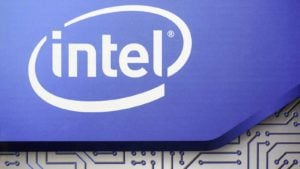
Artificial intelligence is generally considered to be the “can’t miss” opportunity of the 2020s and beyond. I’ve seen estimates of compound annual growth ranging from 19% through 2032 to a much higher 37% through 2030. In either case, the potential for massive returns is evident. However, with such strong growth projections, there are also bound to be instances of overpricing, especially in AI stocks.
That’s what We will be discussing here, AI stocks that are substantially overpriced at present. The thrust of the article is that investors should tread carefully in those equities. Each has the potential to punish investors moving forward.
Grumblings of overpriced AI shares have plagued the market pretty much since it took off. Some of those grumblings are overdone yet others are worth heeding. Let’s look at the latter.
ARM Holdings (ARM)

ARM Holdings (NASDAQ:ARM) is either a strong competitor among AI stocks or a canary in the coal mine. It’s honestly very hard to say with any confidence which of the two is correct but let’s walk through each scenario.
The reasons to believe that ARM Holdings is indeed a very strong AI stock are evident in its most recent earnings report. The company reported Top Line results that increased by 21%, reaching $928 million.
Earnings per share reached 36%, outpacing Wall Street’s expectations of 30 cents. That led to overall earnings of $224 million for ARM Holdings. That figure was particularly impressive given that the firm was essentially a break-even company just a year ago.
As positive as that all sounds, the problem arises in the company’s somewhat conservative guidance moving forward. The problem is that ARM Holdings provided forward guidance that was essentially in line with what Wall Street had been anticipating. In other words, Wall Street was essentially saying that it requires AI firms to forecast a blowout future or be punished. It all suggests that investors may be disappointed as AI ebbs and flows over the next few years which could certainly punish ARM Holdings as one of the more ubiquitous artificial intelligence providers.
C3.ai (AI)

C3.ai (NYSE:AI) is already a much-maligned AI stock and I don’t see that getting any better. to be fair, I don’t think there’s any reason for optimism around its shares at this point.
I find it a bit surprising that C3.ai was able to pop on earnings a few months ago. Yes, growth accelerated but at what price? Top-line growth reached 18% but the company’s net losses increased from $63.2 million to $73 million. The rationale for the sudden share price increase was a slimmer-than-expected loss. frankly, I don’t get it. The company has been an overhyped beneficiary in the AI boom for a long time. It’s also been a disappointment overall.
I’m not sure what positives there are to find about the company moving forward. Should investors be optimistic given that earnings per share are expected to fall again when the company releases earnings at the end of this month? Or should investors for some unknown reason choose C3.ai over better competitors like Palantir (NYSE:PLTR) that understand how to run a business profitably?
Intel (INTC)

Intel (NASDAQ:INTC) is essentially a troubled former shell of itself and a company that cannot find firm footing. The company continues to be a beacon of hope in the American chip manufacturing space but there’s a long way to go before anything substantial is accomplished.
I’ve wavered on Intel’s stock over the past few months. I can’t help but be intrigued by the preferential treatment the company has received from the U.S. government. But my better angels tell me that you can’t subsidize your way out of a non-competitive business. The company continues to produce losses and has given guidance that that is the continued expectation. Not only is earnings guidance expected to continue to be negative but it was also worse than anticipated.
The consistent theme for bullishness is that Intel has somehow reached a bottom. There’s no logical reason to believe that and it’s more hope than anything else.
On the date of publication, Alex Sirois did not have (either directly or indirectly) any positions in the securities mentioned in this article. The opinions expressed in this article are those of the writer, subject to the InvestorPlace.com Publishing Guidelines.






